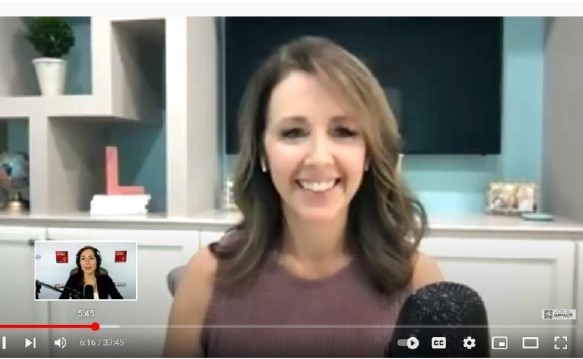It has happened to all of us at one point or another.
We're having a conversation with someone, and make a casual comment, to which they indignantly respond, “Oh, so you're saying XYZ?!” and all that goes through our bewildered mind is, “Huh? How did you get THAT from what I said??”
At that point, one thing has become suddenly clear: there's a giant gap between what you thought you said and what they thought they heard.
My job as a coach is to help identify and close that gap for clients — or better yet, help them predict where the gap might be and successfully avoid it in the first place.
But why does the gap happen?
Truthfully there are countless possible reasons. For starters,
- It could be a result of a difference in experience, priorities, or responsibilities (e.g.accounting, engineering, or sales roles).
- It could be due to the nature of your relationship (e.g., platonic, romantic, coworker, client, boss) and if that includes a power differential.
- It could stem from cultural or demographic roots such as generational, gender, racial, religious or ethnic differences.
- It could be tied to the body's circadian cycles — is one of you extra tired or hungry, perhaps?
- It could even be something much smaller, such as reminding them of something they saw on television last night.
The reality is that it's usually more than just one singular factor.
However, there is often one particular factor that is an influence more often than not:
It's that we don't hear what the other person meant because we don't fully listen.
I know I'm certainly guilty of hearing part of what someone says, and then mistakenly believing I know where they're going with their story, jumping the gun and giving a response to a question they neither asked nor wanted to ask.
In a busy world, it’s easier to listen and give immediate feedback to the other person than to take the time to understand and to reflect about what the other person may be feeling or putting myself in their situation.
The analogy I often use is that most people listen in a conversation like they're participating in a game of double-dutch jump rope: they watch the speaker's lips as if watching two spinning ropes rhythmically opening and closing. Their posture is at the ready with one foot forward and one foot back, starting to rock back and forth, poised to leap in and start jumping (or talking) the moment there's a good opening.
The antidote is a combination of mindfulness and empathy.
Mindfulness is about being fully present in the moment, listening for the sole purpose of more fully understanding what someone is (or isn't) saying, and why.
Empathy is the ability to put yourself in other people’s shoes and feel (or at least imagine) what they feel.
Both of these skills are critical for building both personal and business relationships, and essential for developing strong leadership skills.
Listening with empathy is a major theme this week on the Speaking to Influence’s podcast , with special guest Lesley Pyle, Founder of HireMyMom.com.
Lesley began her work-at-home career way before it was “the norm.” For her, it started back in 1996 after giving birth, and realizing that she still wanted to work, but as a freelancer on her own terms, schedule, and fees, so she could continue to be present for her young children the way she wanted.
Soon after, she saw an opportunity to help two important groups of people:
- Other professional women – especially working mothers – who wanted to find flexible, legitimate, home-based work, and
- Small businesses who needed to find talented, virtual part-time team members and freelancers.
With that, the fabulously-named HireMyMom.com was born!
On the show, Lesley shared mistakes she made when she made assumptions mid-conversation instead of fully listening to hear what her clients had to say. Unsurprisingly, giving advice that does not answer a clients’ needs is not a recipe for success.
Of course, mindfully listening with empathy is just as important when marketing to prospects if we ever want them to become clients.
Listen in here as we explore how communication changes when common ground is found, how to recognize when prospective clients are not a good match, and how to deal with conflict in a more empathetic (and successful!) way.
Catch the full episode here or watch on YouTube here.
By the way, did you have a good Halloween? If you're like me, the scariest part of the holiday is the giant bowl of candy that calls to me at night after the kids go to bed… My mindfulness and listening skills need to better tune in to the inner voice that says “No, you do NOT need another piece of chocolate… go to bed!”




